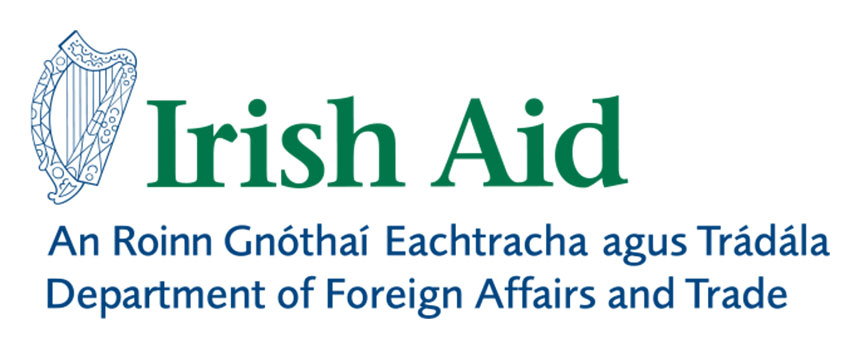Women, the Environment and Economics
“Feminism in a mode of analysis, a method of approaching life and politics, a way of asking questions and searching for answers, rather than a set of political conclusions about the oppression of women.” – Banúlacht
Overview
As we have seen in the Questioning Economics session, there is a fundamental flaw in the dominant economic system which seeks indefinite growth in a planet of finite resources. In this session we will introduce a feminist analysis of the economy. We will consider what other contributions are made towards the economy which are not valued, and how this effects women in particular. This session will also look at the environmental impacts of our current economic model on livelihoods all over the world.
Learning Outcome
That participants will become familiar with a feminist mode of analysis, will be able to analyse the economy from a feminist perspective, and will understand the justice issues associated with our current environmental crisis.
Note to facilitator: this section has drawn together two aspects of economic justice. It does fit a lot into one section, but it is not intended to be indicative of their significance — you are invited to split it into two sessions if you feel this to be useful or necessary.
Table of Contents
- Resources
- 1. Video: ‘This Changes Everything’ – Naomi Klein
- 2. What is Feminist Economics?
- 3. “The Interconnectedness of Paid and Unpaid Work” – Christine E. Bose
- 4. True Currency: About Feminist Economics, Episode 1 'If Women Counted”
- 5. Close the Gap! Action Aid
- 6. [ECO]NOMICS Part 1: The Scope of the Climate Crisis
- 7. Article: ‘Why we fight for the living world’ – George Monbiot
- 8. Article: Globalization, Neoliberalism, and Climate Change: Toward a New Regulatory Regime
- 9. Video: ‘How to Achieve Good Lives That Don’t Cost the Earth’ – Saamah Abdallah
- 10. Blog: Being a Feminist in the 1980s – Cathleen O’Neill
- Discussion Questions
- Learning Journal
- Extra Resources
Resources
1. Video: ‘This Changes Everything’ – Naomi Klein
In this ten-minute video which relates to her book ‘This Changes Everything’, Naomi Klein looks at the links between climate change, global inequality, and the concentration of corporate power.
2. What is Feminist Economics?
"All of us, if we get old enough, need to be taken care of." Diana Strassmann, Rice University professor and founder of the journal 'Feminist Economics' discusses her work, shifting economics from a discipline of neglect to one of care and inclusion.
3. “The Interconnectedness of Paid and Unpaid Work” – Christine E. Bose
Taking women’s unpaid housework and how this work is valued in American society as a starting-point, Christine E. Bose moves on to look at how paid and unpaid domestic work has been effected by globalization; namely that is has transferred “white women’s domestic and carework labor in developed countries to women of color who migrate from developing nations as contract workers or undocumented workers.”
4. True Currency: About Feminist Economics, Episode 1 'If Women Counted”
In this first episode from True Currency: About Feminist Economics Ruth Beale and Amy Feneck from the The Alternative School of Economics unpack issues around work, care and parenthood with members of the Women’s Budget Group; a Latin American parents group in Brixton; workshop participants at a children’s centre; and artists reimagining local economies.
5. Close the Gap! Action Aid
Gender inequality in work costs women in poor countries US$9 trillion each year – more than the combined GDPs of Britain, France and Germany. This report by ActionAid looks at two key aspects of global gender inequality – the gender pay gap and the gender employment gap.
6. [ECO]NOMICS Part 1: The Scope of the Climate Crisis
Those who have most to gain from polluting and destroying the climate have the power to do so, while those most at risk have the least power to stop it. Economists have been central to this failure to respond to the crisis, and their approach has undermined action. In this four-part lecture series, Professor Juliet Schor guides us through the economics of climate change.
7. Article: ‘Why we fight for the living world’ – George Monbiot
In this opinion piece, George Monbiot challenges the economic arguments often assumed in the green movement’s attempts to be persuasive, when, in his opinion, a lot of what drives environmentalism is compassion and a human need to connect with the natural world.
8. Article: Globalization, Neoliberalism, and Climate Change: Toward a New Regulatory Regime
This article explores how the environmental crisis is affecting all countries, all communities, and all workers. It looks at implications for labour movements all over the world in the face of neoliberalism and the environmental movement. It is a long article, but it is broken into 5 sections, which can be read separately if desired.
9. Video: ‘How to Achieve Good Lives That Don’t Cost the Earth’ – Saamah Abdallah
In this TEDxTalk, Saamah Abdallah asks if there has to be a trade-off between prosperity and sustainability. Abdallah explores what societal conditions need to be in place for a prosperous, sustainable society – if prosperity is understood in terms of wellbring, not endless economic growth.
10. Blog: Being a Feminist in the 1980s – Cathleen O’Neill
During the recession in the mid ’80s I was a very young mother with 5 children who had been forced onto social welfare after a marriage breakup. The combination of recession, depression, feminism and poverty made for a fast learning curve as I battled week after week with one state or political official or another for survival...
Read more
Discussion Questions
- Do you think there is a common thread that runs through the resources?
- In terms of both gender and the environment, what is the impact of class, and cultural background, in your opinion?
- There are a few different approaches to environmental politics dicussed. Which do you prefer?
- What does taking an environmental stance really mean for economies, in your opinion?
- What does taking a feminist approach to environmental and financial justice mean, in practical terms?
- Who or what is left out of the resources?
Learning Journal
- How are women effected by capitalism and the environmental crisis?
- Who is responsible for the environmental crisis?
- Do I feel that I am affected, in some respect, by global inequality?
Extra Resources
| Hans Rosling | Video: Magic Washing Machine | |
| Survival International | Video: Ayoreo tribe being driven off their land in Paraguay for industry purposes. This website is full of videos and information about different endangered indigenous peoples | |
| Democracy Centre | Interactive Website: Why climate change is about women | |
| Shelly Walia | Why women are more at risk in earthquake ravaged Nepal. Quartz India (2015) | |
| Prisoner of Love: Intersectional Political Economy | Why do patriarchal systems survive? What is missing in how economics relates to the concepts of identity and power? Jayati Ghosh talks with Nancy Folbre about her new book, "The Rise and Decline of Patriarchal Systems," and explores how we might reframe feminist economics to better address societal challenges. |


